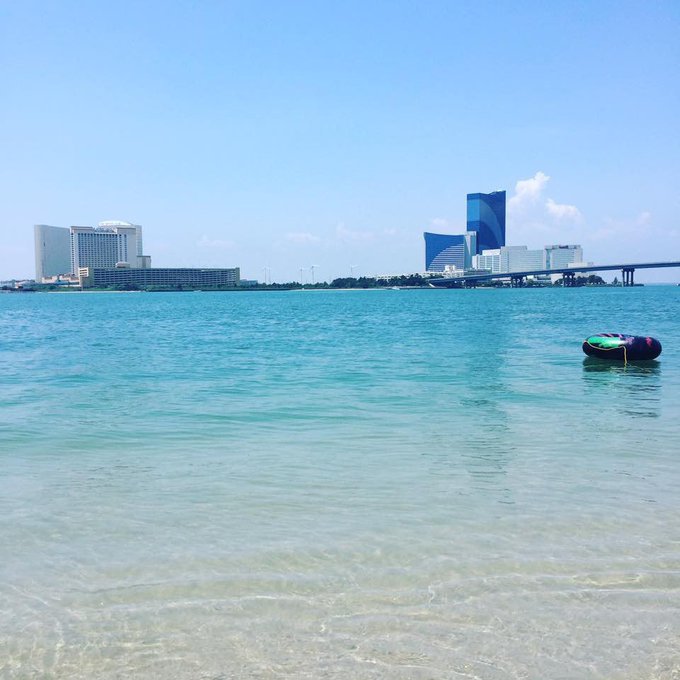By Kevin Byrne, AccuWeather.com Staff Writer
July 15,2016; 6:34PM,EDT
Tourists and residents along the New Jersey coast noticed a surprising change in the color of the ocean over the last week.
NASA satellite imagery recently captured a natural-color image of a large phytoplankton bloom that has been lingering off the coast of New Jersey and has caused waters along to coastline to transform into a shade of turquoise.
The bloom formed as a result of upwelling, which occurs when winds blowing across the ocean surface and push water away. Water then rises up from beneath the surface to replace the water that was pushed away, according to the National Oceanic and Atmospheric Administration (NOAA).
Oscar Schofield, a marine scientist with Rutgers University, told NASA that the wind-driven upwelling is reflected in relatively low water temperatures off the Jersey shore.
"These upwellings occur every summer, and fuel large phytoplankton blooms," Schofield said. "Studies have suggested these summer upwelling events occur several times each summer and lead to large blooms that can discolor the water."
The tropical-colored water is drawing plenty of buzz among visitors, including around Atlantic City.
Jeff George, owner of Atlantic City Cruises, told the Press of Atlantic City this week that his customers have been very curious, asking his staff many questions.
"I've been on the water my whole life, and I can't remember water this clear and this green for this amount of time," George said, adding that dolphins have been easier to sight thanks to the change in water color.
The ongoing drought conditions in the Northeast have been cited as a factor as to why the water became so clear, according to The Press.
According to NASA, phytoplankton blooms are an important food source of marine life and are often harmless. However, sometimes they can be harmful by depleting the oxygen in the water and suffocating marine life.
So who's noticed the tropically-turquoise waters off of South Jersey over the last 10 days? Quite unusual, right?
Three damaging tornadoes struck central Minnesota Monday night. Two EF2 tornadoes caused roof damage to several properties in the towns of Litchfield and Watkins, while an EF1 tornado touched down in southern Sterns County.
Only one minor injury was reported, according to the National Weather Service (NWS).
Severe flooding struck Wisconsin on Tuesday, forcing Gov. Scott Walker to declare a state of emergency for eight counties. The storms killed two people, according to the Wisconsin State Journal.
Firefighters battled the Cold Springs Fire in Colorado this week, which burned over 500 acres, forced mandatory evacuations and destroyed several homes. The fire started near Nederland, Colorado, about 15 miles west of Boulder.
Two men were arrested for the role in the start of the fire, according to the Boulder County Sheriff's Office.
RELATED:
Countdown to Rio: How Olympic athletes train to acclimate to Brazil's hot, humid climate
Pokemon Go: How does weather affect which characters you can collect?
Scuba diver lost off Queensland coast recounts terrifying 6-hour ordeal
Celia and Darby developed into hurricanes well away from land in the East Pacific, keeping the basin active this week. Celia weakened to a tropical storm by Wednesday, while Darby continued to strengthen as of Friday morning.
Typhoon Nepartak made landfall about 5 miles southwest of Taitung City, Taiwan, shortly before 7 a.m. local time on Friday, July 8.
Nepartak unleashed powerful winds, torrential downpours and reportedly claimed at least 12 lives. Three people were killed and over 300 were injured in Taiwan, while nine people died and another 18 were missing in China, Reuters reported.
Several AccuWeather meteorologists and staff writers contributed content to this article.



No comments:
Post a Comment